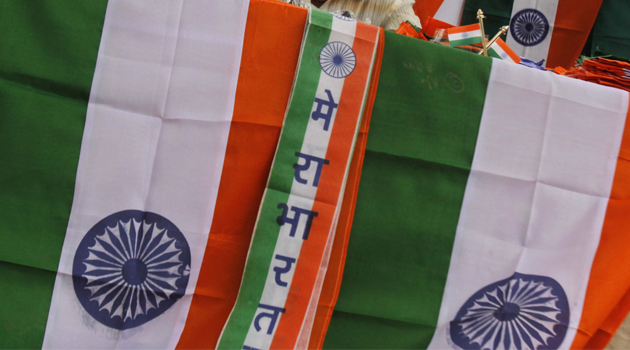June 12 – At least 54 million people in Asia can thank Bindeshwar Pathak when they defecate in private. If he has his way, about 600 million people in India who don’t have that luxury will join them a decade from now.
Pathak, 71, invented a pour-flush, compost latrine in 1970 that is now in use in China, Bangladesh, Pakistan, Vietnam and Cambodia. He’s leading a push to raise at least 2 trillion rupees ($34 billion) from Prime Minister Narendra Modi’s government as well as billionaires such as Bill Gates and Mukesh Ambani to end open defecation in India, where about half of the nation’s 1.2 billion people relieve themselves outdoors.
“These other countries came to my door and asked for the model 30 years ago, but our government has yet to take responsibility for India’s biggest problem,” said Pathak, an Indian who was given the “Legend of Planet” award by France’s Senate last year for his work in sanitation. “The new government seems more receptive to this problem.”
At stake is $54 billion a year in economic costs in India, equivalent to about 3 percent of gross domestic product in Asia’s third biggest economy and a quarter of global losses from poor sanitation. Open defecation contaminates ground water, spreads disease and exposes women to sexual assaults, including two girls in India who were raped and hanged from a tree last month after squatting in a field near their homes.
The economy suffers from premature deaths, higher health care costs and a drop in productivity as people fall ill and miss time from work and school, according to a 2011 report by the Water and Sanitation Program, a World Bank-supported group that analyzed data from 2006, the most recent available. A lack of toilets also deters tourists, with at least three studies showing India poses the highest risk to travelers of picking up multiple drug-resistant strains of fecal bacteria.
“If you don’t have the drive, then all the money in the world can’t fix a problem which really can be solved,” said Chris Williams, executive director of the Water Supply & Sanitation Collaborative Council, a unit of the United Nations based in Geneva. “What India has to do now is really take ownership of the process.”
India accounts for about 60 percent of the world’s residents without toilets, according to a World Health Organization and UNICEF report released in May. The country’s 50 percent open defecation rate compares with 23 percent in Pakistan, 3 percent in Bangladesh and 1 percent in China, the report said.
Raising $34 billion won’t be easy. The amount is 16 times more than India’s government has spent on its main toilet- building program since 1999, according to the Ministry of Drinking Water & Sanitation. Pathak’s New Delhi-based Sulabh International Social Service Organization has an annual budget of $60 million, and he says nobody has yet pledged a dime.
Even so, he’s optimistic.
“If the government executes my plan, then we will raise this money and end open defecation in the next 10 years,” Pathak said.
He plans to spend the $34 billion on 100 million toilets at $340 apiece to end open defecation by 2024. He’ll also need funds for a team of as many as 40,000 unskilled laborers earning at least 15,000 rupees ($250) per month to travel across India installing the toilets in cities and villages.
Modi, who took power last month after winning the biggest Indian mandate in 30 years, has voiced support for putting toilets in homes without spelling out the details. Nitin Gadkari, the minister for water and sanitation, has yet to meet with top bureaucrats since taking over after his predecessor died last week, said spokesman Shambhu Nath Choudhary.
“By 2022, no Indian should be without a home, without clean water, without electricity and without a toilet,” Modi told the lower house of Parliament yesterday.
Pathak has sought the help of billionaires such as Kumar Mangalam Birla, chairman of the Aditya Birla Group, and Nita Ambani, the wife of Mukesh Ambani, India’s wealthiest man. He’s also held discussions with State Bank of India, the country’s biggest lender.
Tushar Pania, a spokesman for Ambani’s Reliance Industries Ltd., said he did not receive a reply from Nita Ambani’s office when asked about her plans to contribute to Pathak’s plan. State Bank of India spokesman M.K. Rekhi could not immediately comment on the bank’s commitment to Pathak. Aditya Birla Group spokeswoman Pragnya Rekhi was not available for comment on her mobile phone.



































